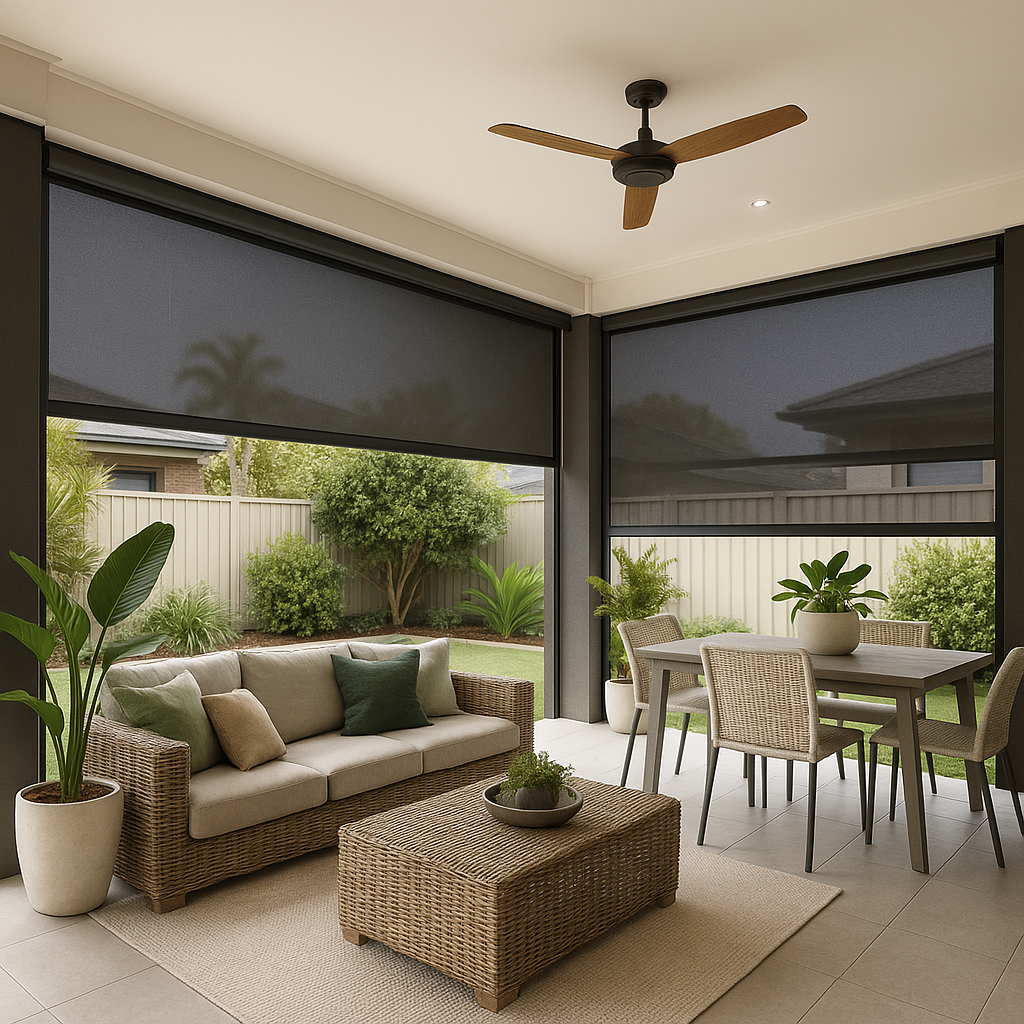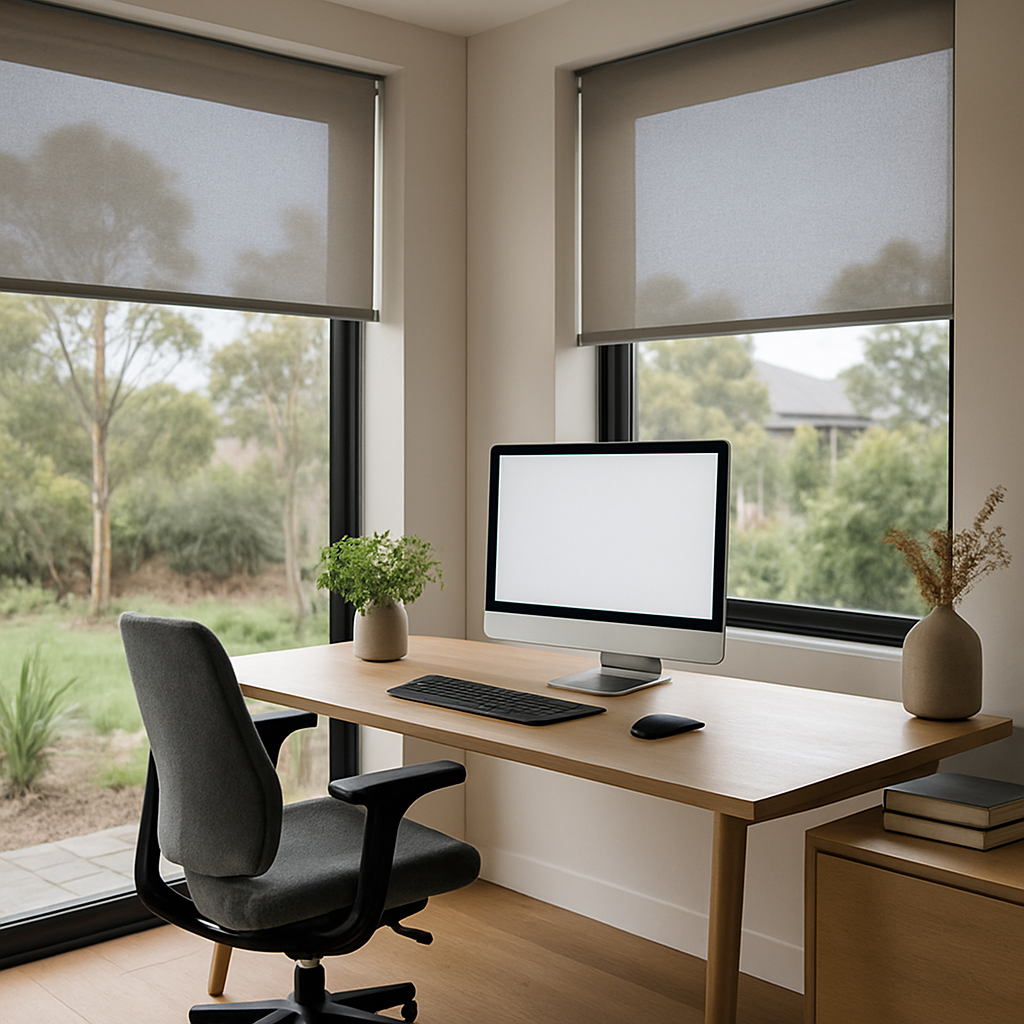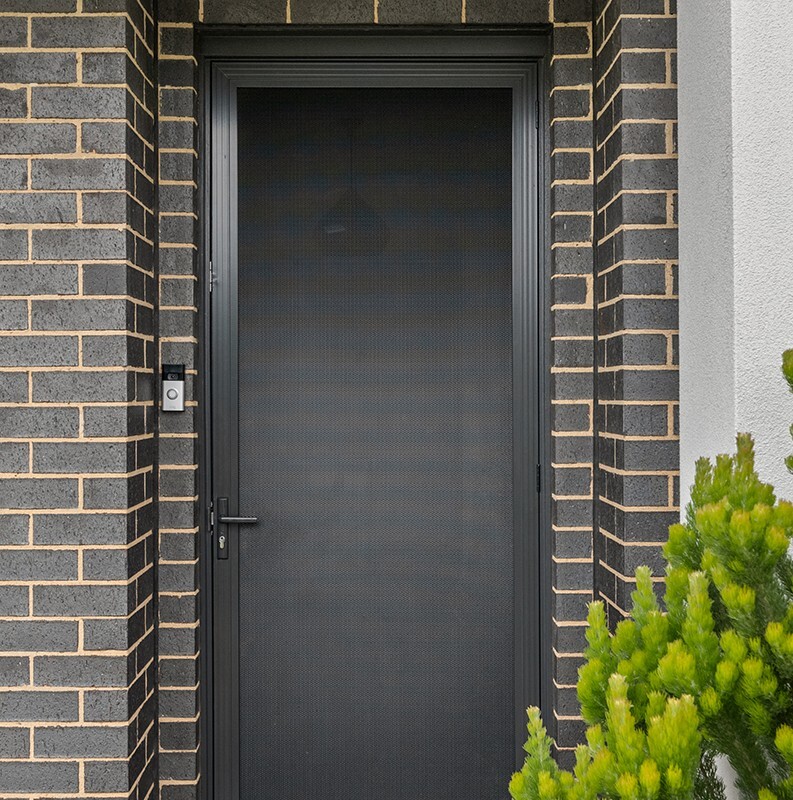When it comes to making the most of your outdoor space—whether it’s a sunny balcony, an alfresco dining area, or a cozy deck—what you choose to shield your space matters. At Security Plus Shutters, Doors & Blinds, we believe your...
Blackout Blinds and Better Sleep
If you are a shift worker, are struggling with poor sleep quality, live in an area that is too bright at night or just generally want to ensure you are getting good sleep, you may consider blinds which block out natural light.
It is thought that complete darkness may lead to better sleep. Is it true, and can blackout blinds provide better sleep and overall well-being? Find out more as this is explored below.

The Importance Of Good Sleep
According to the NIH, good sleep is crucial for our health and wellbeing. Good sleep improves brain functioning, our overall mood and decreases risk of various diseases and disorders.
More than just a time for us to recharge, during sleep our brain removes waste from our system, including toxins that have been found to be linked with Alzheimer’s disease. Everything in our body mostly uses sleep to repair, including our immune system, so it is very important that we are getting enough sleep and that the quality of sleep is of a high level.
NIH explains that there are three elements to good sleep. These are:
1. The amount of sleep you get
2. The quality of sleep you get
3. Consistency of sleep schedule
What are blackout blinds?
Blockout blinds are a type of roller blind that work to block light from entering the room. Roller blinds are also available in translucent or screen blinds. Screen blinds allow sunlight while eliminating glare and UV and maintain a view of the outside.
Blockout blinds are made from a thick, opaque fabric that does not allow light through, and can be made with a silver backing to reflect light completely. These window coverings can be cut to size to ensure they are tightly fitted to the window frame with no gaps for maximum light block.
Do they improve sleep quality?
The Sleep Foundation explains that light is an essential element that impacts our circadian rhythm and allows us to feel ready for sleep or awake. There are a range of physical processes that occur within the body to prepare us for sleep.
When we are in a dark space, melatonin is produced by the pineal gland to encourage sleepiness. Exposure to light can block the production of this hormone and inhibit sleep quality.
As night blinds create the ideal dark environment for sleeping, this creates a healthier circadian rhythm and encourages the production of melatonin when we are in need of it. These blinds can also enhance sleep quality for babies who need to nap during the day, and shift workers who may need to sleep during the day.
Some factors to consider
While darkness is necessary when going to sleep, remaining in darkness when waking may make it difficult to wake up, and still inhibit your circadian rhythm. For this reason it is a good idea to lift the blinds the moment you open your eyes, or consider smart motorisation.
Motorisation may assist as blinds programmed to open at a certain time can expose you to natural light when you are wanting to get up and make you feel more refreshed, awake, and ready for the day.
9 Other Tips For Improved Sleep Quality
1. Stick to a sleep schedule
Sleeping at the same time every day and waking at the same time every night drastically improves sleep quality as your body becomes more attune to this daily rhythm, and more naturally prepares your body for sleep and wake.
2. Exercise during the day
Staying physically active ensures your body has exerted enough energy to feel tired by the end of the day. You should not, however, exercise too close to bedtime as your body can continue feeling energised for hours after.
3. Spend time in natural sunlight
Exposing yourself to at least thirty minutes of sunlight a day, especially in the morning, within an hour of waking, impacts the internal body clock and increases production of serotonin from which melatonin is derived.
4. Avoid nicotine or caffeine
These are stimulants that can stop your body from feeling tired, even hours after use.
5. Avoid naps later in the day
This can also inhibit your circadian rhythm.
6. Avoid alcohol or large meals close to bedtime
Alcohol along with a large meal too close to when we would like to sleep have been found to impact sleep quality, preventing restoration.
7. Avoid electronics before bedtime
Light from screens have been shown to impact melatonin production before bedtime. It is encouraged that other relaxing, light-free activities are undertaken instead.
8. Curate a good sleep environment
A range of factors from temperature to sound can impact our readiness for sleep, along with darkness. Ensure you are comfortable.
9. Don’t just lie there waiting
It is recommended that, if after twenty minutes you are still finding it difficult to fall asleep, you begin doing a relaxing activity until you begin to feel sleepy again.
We Can Help
Security Plus Shutters, Doors & Blinds has been providing high quality window coverings to Australian homes since 1992. Contact us to enquire about customised blockout blinds and lift your overall well-being with better sleep.



